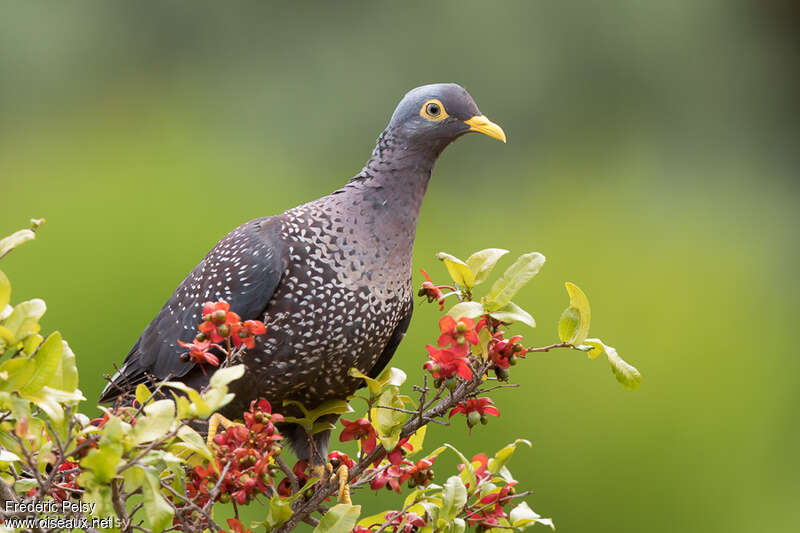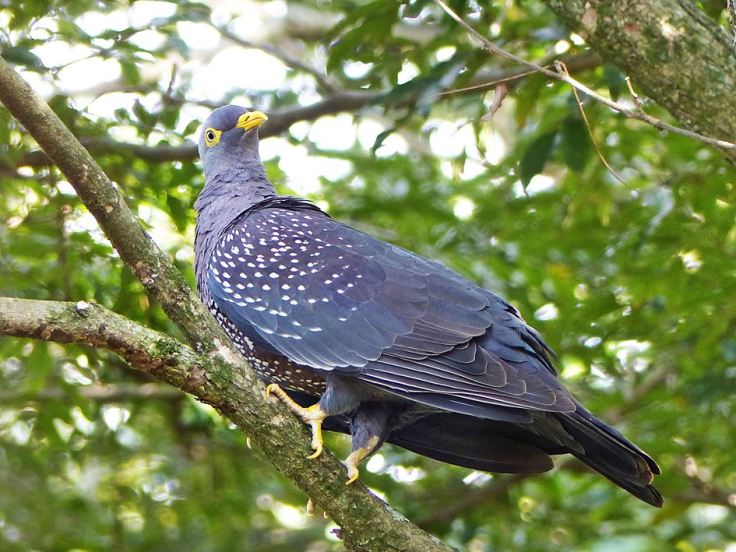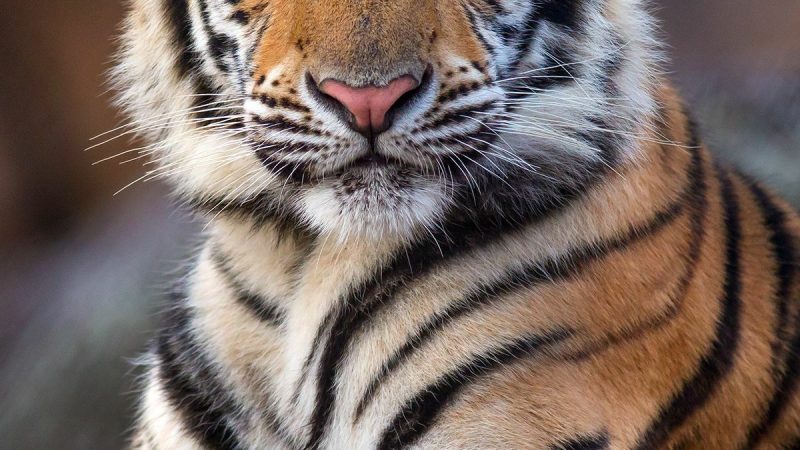Graceful Majesty: The African Olive Pigeon

In the lush and vibrant landscapes of Africa, a bird of majestic beauty graces the skies with its presence – the African Olive Pigeon (Columba arquatrix). This splendid creature, also known as the Rameron Pigeon, is a symbol of elegance and grace, captivating birdwatchers and nature enthusiasts with its stunning plumage and tranquil demeanor.

The African Olive Pigeon is a large and striking member of the pigeon family, characterized by its gorgeous olive-green and grayish-blue feathers that shimmer in the sunlight. Its name, “Olive Pigeon,” derives from the olive hue that dominates its plumage, creating a harmonious blend with hints of lilac on its wings. Their soft, dark eyes exude a sense of calm and tranquility, adding to their allure as one of Africa’s most charming avian residents.
Endemic to the woodlands and montane forests of eastern and southern Africa, these pigeons have adapted to thrive in a variety of habitats, from dense rainforests to open woodlands. With their strong wings and swift flight, they gracefully navigate through the foliage, often evading the watchful eyes of predators through their agile maneuvers.

One of the African Olive Pigeon’s most distinguishing features is its impressive size. As one of the largest pigeons in its range, it stands out among other avian species. Its stature, combined with its radiant appearance, makes it an enchanting sight for birdwatchers lucky enough to spot one in its natural habitat.
In the forested regions they inhabit, African Olive Pigeons primarily feed on fruits, berries, and seeds, making them essential contributors to the ecosystem’s natural processes. They play a crucial role in seed dispersal, aiding in the regeneration and diversity of plant life in their environment. This ecological contribution highlights the significance of these pigeons in maintaining the balance and health of the African woodlands.

Beyond their captivating beauty and ecological importance, the African Olive Pigeon’s gentle and unassuming nature endears it to those who encounter it. Although not known for complex vocalizations, their cooing calls resonate peacefully through the forests, adding to the serene ambiance of their surroundings.
As with many species, the African Olive Pigeon faces challenges in the form of habitat loss and fragmentation due to human activities. Deforestation and expanding human settlements pose threats to their natural habitats, making conservation efforts critical to safeguarding these magnificent birds.

In a world filled with diverse and breathtaking avian wonders, the African Olive Pigeon stands as a symbol of grace and majesty. Its presence in the African woodlands is a testament to the continent’s rich biodiversity and the intrinsic value of preserving natural habitats.
As we continue to admire and appreciate the beauty of the African Olive Pigeon, let us also recognize the importance of conserving the precious environments it calls home. By protecting these magnificent birds and their habitats, we ensure that future generations can bear witness to the graceful majesty of the African Olive Pigeon and the wonder of the natural world it embodies.




